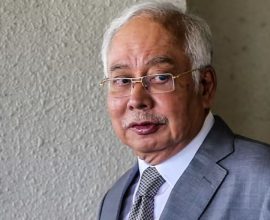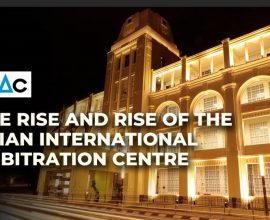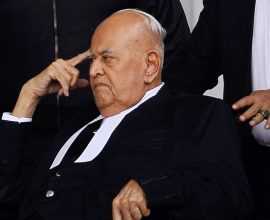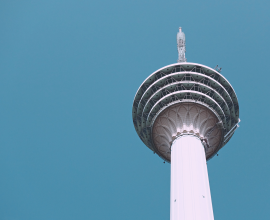Are We One Nation or Three?
When our forebears commenced building Malaysia 61 years ago, we were a plural nation. We comprised of many ethnic groups. We still do. Somewhere along the way, things changed. We have lost that Malaysian identity. Over the years, we have regressed into a form of forced cultural separation. We have withdrawn, for refuge, into our […]
When our forebears commenced building Malaysia 61 years ago, we were a plural nation. We comprised of many ethnic groups. We still do. Somewhere along the way, things changed. We have lost that Malaysian identity. Over the years, we have regressed into a form of forced cultural separation. We have withdrawn, for refuge, into our respective ethnic groups. This does not bode well.
A look at recent history might give some context to this discussion.
For many decades prior to independence, the British empire held sway over a plural Malaya. They influenced everything from government to lifestyle. After independence and certainly after Singapore left, the different cultures attempted a new ‘Malayan’ identity. At the same time, they tried to maintain their separate cultural personalities. Growth and change are always organic.
But then the ruling government tinkered with that organic process.
It came up with disparate policies, manifestos and blueprints. Colonial vestiges that maintained a decent level of unity formed the foundations for tinkering. The education system was stretched, reformed, manipulated and deformed: so much so that confusion reigned every year for the next decade and a half.
By 1972, more by design than by chance, the local education syllabus insensibly retreated from the English language. What was meant to be a dual system became a monolingual one. Bahasa Malaysia became the new medium. And over time, no matter what language was taught, critical thinking was thrown out. We now have graduates, even law graduates, and lately doctors, who are unable to record a decent thought on paper—whether in Bahasa Malaysia or English.
All that, as you can see for yourself, has had its effect on our multicultural society.
On and off, I teach at some local universities. A vast majority of the students are Malay. I am amazed at their commitment and courtesy. I admire the regard they extend to their teachers. It is the same as I had experienced when I was first exposed, as a boy of 12, to middle school.
I was educated at a Tamil primary school. I fear I have nothing positive to say of it. What Tamil I learned was at home, from my father, a stern, taciturn man.
In middle school, I was placed in a ‘Remove Class’, as were those from the Chinese and Malay medium schools. I could speak formal Bahasa Malaysia, yet I did not know a thing about Malay or Chinese culture. The Remove Class was physically ‘removed’ from the English-stream pupils. We were not told, but felt somehow, that English-stream pupils were our betters, destined for greater heights. My friends in Remove Class were from a different world. I had never had Chinese or Malay friends. We all managed. Children are like that. They will find a way to be friends. I am glad for those four years. A further four-year stint at the Royal Military College helped deepen my understanding of different cultures. We are friends to this day. They were courteous then; as they and their grandchildren are courteous now. Nothing has changed on that level.
In the late 1980s Mahathir propelled — and navigated — the country through a period of ‘nation building’. He constantly said a few things. I remember some of them well. ‘Certain skills have to be learned. Civil society must equip itself for the changes that would come upon the nation in the decades to come. We have to become more mature.’ The ‘scientific, technocratic, engineering and educational infrastructure has to be strengthened to meet the challenges that lie ahead,’ he would say. I don’t think his subordinates, especially the powerful civil service, took him seriously. After more than three decades, he has been proven right.
We were once famed for our brilliance, our education system, and our sporting heroes. I still remember the Thomas Cup being paraded in an open Cadillac. Gone are those halcyon days.
Today we are notorious for the wrong reasons.
Our differences have increased. The nation’s unity has declined. We see each other as different nations.
Our nation has, since 1970s, fallen into a reverie induced by middle eastern culture. And an odd form of ethnic and religious fervour has driven the nation away from international standards.
Sibilant whispers are constantly raised that such harmony as we now enjoy — by reason of decades of institutionalised polarization — is wholly facile, and entirely fragile. That we should not, and cannot, speak our minds. That by a mere question, we may offend all and sundry. That our nation may, in a flash, be overcome by racial and religious mayhem. That threats lurk at every corner, even now, after GE-14.
At every moment a different peril is threatened. At every turn a new calamity is predicted. At every junction, a different nation is affected.
Therefore, we are constantly lectured that one must tread carefully, tiptoeing one’s way from Alor Star to Lahad Datu, lest one triggers a racial avalanche.
It all had one source: the previous regime and its cohorts, many of whom continue to feed this. Much of our decline in the last few decades has stemmed from their realpolitik. The decay in the last decade has been almost cataclysmic.
The previous regime had embedded into language – the education system and the civil service – a patronising, but insightful, phrase: ‘We must tolerate each other.’
As a nation, we must not promote tolerance. Tolerance is a dirty word.
One tolerates only what, or whom, one dislikes. One embraces, is considerate of, has empathy for, cares, and caters for those who one respects and loves.
National history proves that we are not some form of blancmange that trembles at every wayward wind of sedition.
We may well be the only Asian nation who have lived without any major strife for so long a time.
Such dissension as we have been inflicted upon, comes from those who, for the sake of a few ringgit, are ready to start a religious or racial schism. They are handmaidens to every whim of the froward politician. They adore disunity, and love not the nation. They prefer hegemony to multi-culturalism. They favour intimidation to gentle concord. They desire disparity to commonality. They worship money.
We all know who they are. We all can guess who finances them. We all perceive who holds them on a leash. We cannot win their hatred over by mere words. Only by understanding and dialogue can we draw them from their closed-mindedness to the bosom of a fair and equitable society.
There is no way to do that save by openness, by giving up a little of what is within, and embracing a little of what is without. Only in that way can we celebrate our individuality, and strengthen our cohesion.
It may well take decades to undo the harm already done, but there is no better time to start than just now: there has been an air of exultation and re-awakening since election day of May 9th, 2018. A new-found sense of ownership has emerged in the nation. People ask responsible questions. They are not quick to criticise the government. They think of long term policy issues. They think of helping their country. I sense that people no longer care to refer to themselves as Malay, Chinese, Indian or Others. Lim Guan Eng started it – when asked what he would do as the first Chinese Malaysian Minister of Finance in forty-four years – his reply stunned the nation: “I don’t consider myself Chinese, I am Malaysian.’ This departure from the Three-Nation Identity is not only psychological but is real. It is here to stay.
Should we not seize this moment once and for all and become one people, one nation?





